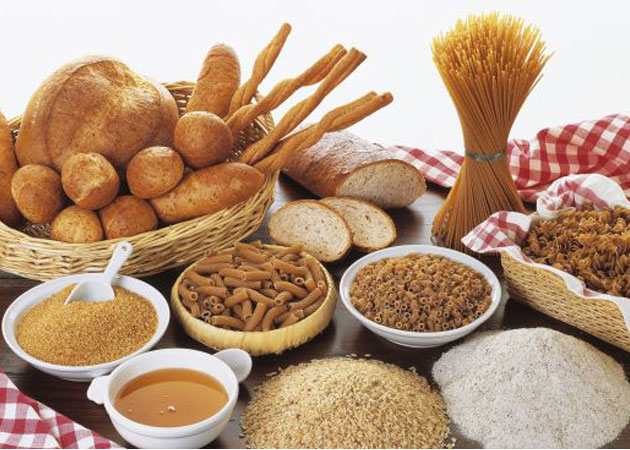

Wherever you go, people with a beginner’s knowledge of fitness will tell you to have more protein to build muscle. But they forget the other most important macronutrient – carbohydrates.
Carbs are often misunderstood. People assume that all carbs are the same, which is untrue. Their basic function is to cause an insulin response in the body and cause better recovery after your workouts. They help restore the glycogen restores within the muscle and the liver, keeping them healthy and giving them their size. Carbs also serve the important function of protein sparing. When consumed the body uses carbs for energy and deputesprotein for the function its meant for- building muscle.
Carbs can roughly be categorized into three types: simple, complex and fibrous. Simple carbs digest quickly and cause spikes in insulin, while complex and fibrous carbs induce a more uniform insulin response.
Insulin, insulin, insulin; you must be wondering why I have been repeating it again and again. Insulin has three basic functions as far as bodybuilding is concerned:
- Stop the secretion of Cortisol, a hormone released post workout that increases muscle breakdown.
- Cause more efficient and quicker transfer of amino acids to your muscles.
- Signal the body to store fat, in simple terms.
Now, we know everybody shuddered on that last bullet point. But don’t you worry, science is here to help.
To clarify,
- Simple carbs are present in milk, sweet fruits like banana, mangoes and apple, table sugar, honey, soft drinks.
- Complex carbs are mostly present in all grain, atta, brown rice and similar foods. This the carb in our chapatis and daal-chawal.
- Fibrous carbs are present in vegetables like carrots, peas etc. and in pulses (daal).
Simply put,
- Have lots of simple carbs after your workout. This is to ensure replenishing of glycogen reserves which get exhausted during your workout.
- Have complex carbs with your protein every three hours through the day. Complex carbs should especially be had when one wants to gain size. They can be reduced when trying to cut down on fat.
- Have fibrous carbs with complex carbs, or sometimes even as a replacement.
- At late night, cut carbs down. Try to keep a gap of 2-3 hours between your last carb meal and sleep. Only have protein (slow digesting like casein or protein blend) before you sleep.
Complex and fibrous carbs restore glycogen restores, and keep insulin levels high and stable.
To prevent unnecessary gain of fat, do not consume simple carbs at times except post workout and as soon as you wake up. They will cause insulin levels to spike erratically and make you store fat you wouldn’t usually store.
So, yes, this is all you need to know to start out. We will soon release an article based on low carb dieting and ketosis.
Train hard, eat big, stay strong!
